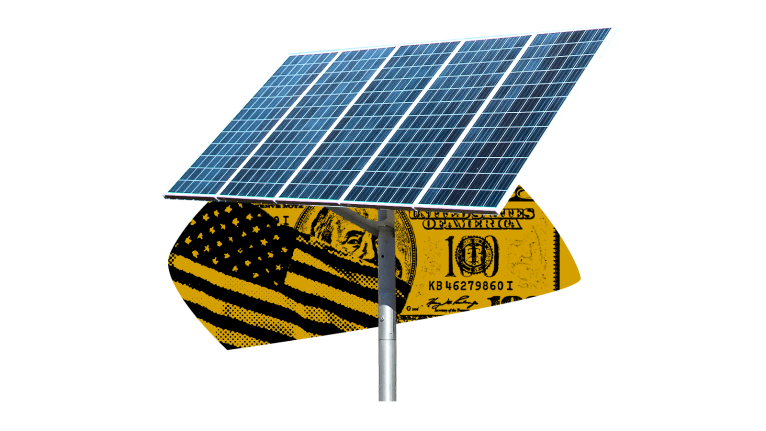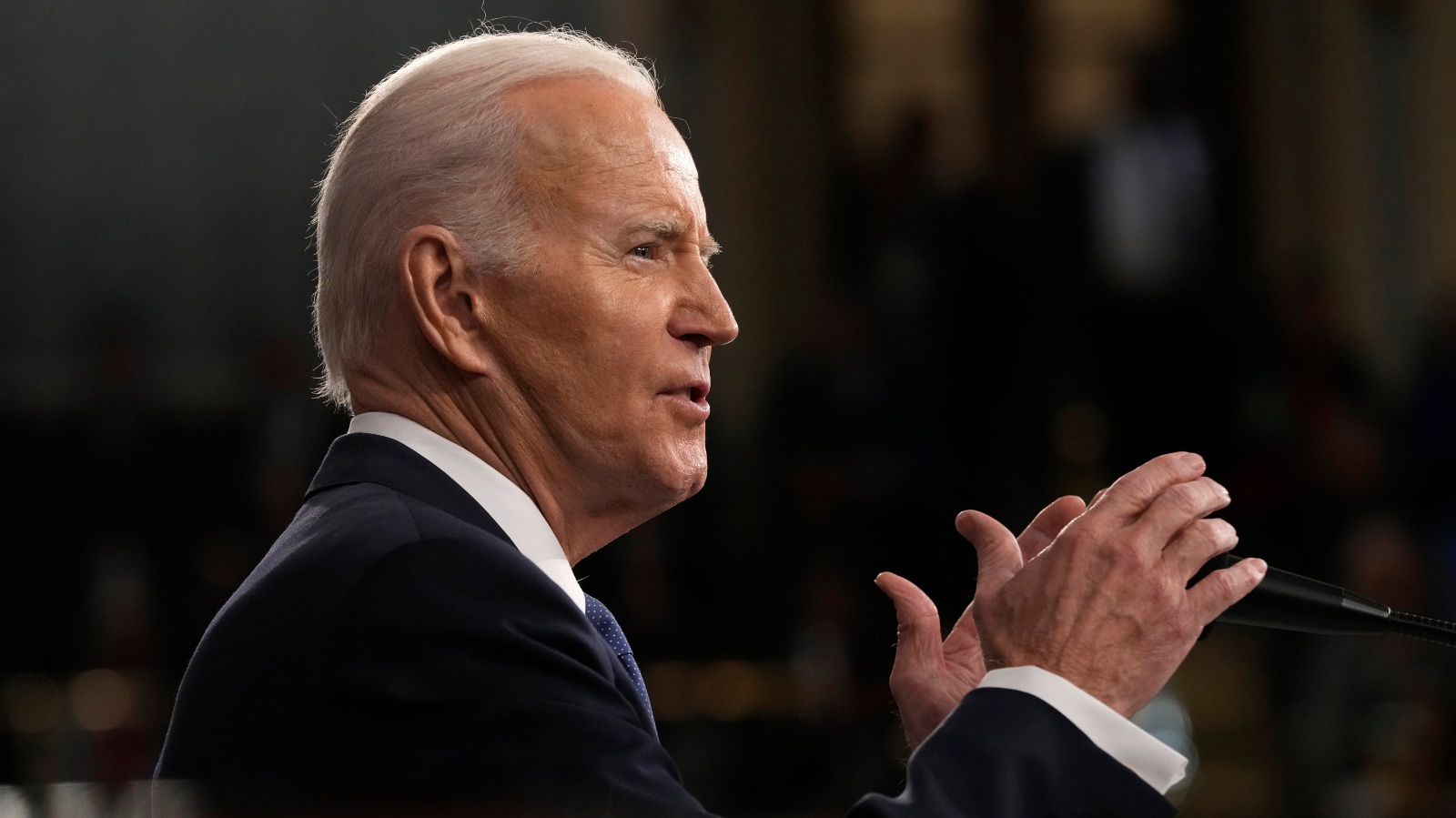President Joe Biden took a victory lap on his climate record during last night’s State of the Union, touting his administration’s major investments in clean energy and resilient infrastructure.
He celebrated the passage of the bipartisan Infrastructure Investment and Jobs Act, as well as the Inflation Reduction Act, “the most significant investment ever to tackle the climate crisis,” Biden told a packed House Chamber. “[It is] lowering utility bills, creating American jobs, and leading the world to a clean energy future.”
Biden highlighted efforts to remove lead pipes from an estimated 10 million households, schools, and care centers where they are still used for drinking water, an epidemic that disproportionately harms Black, Latino, and low-income children. He also reiterated his administration’s pledge to install hundreds of thousands of electric vehicle charging stations, featured new tax credits for families to purchase electric vehicles and energy efficient appliances, and called out the record profits enjoyed by oil and gas companies last year as Americans struggled with high gas prices.
“The climate crisis doesn’t care if you are in a red or blue state,” Biden said. “It is an existential threat. We have an obligation, not to ourselves, but to our children and grandchildren to confront it. I’m proud of how America at last is stepping up to the challenge… But there’s so much more to do. We have got to finish the job.”
But Biden’s address failed to lay out exactly how he plans to do this beyond the roll out of these already-passed acts, particularly as he faces a newly elected Republican majority in the House.
Unlike his calls for tax reform and protections for Medicaid and Social Security, the State of the Union lacked a clear vision for how his administration hopes to tackle the many climate deadlines looming for the last two years of his term, from new emissions limits on coal-fired power plants and vehicles to efficiency standards for appliances and industry. There is also the issue of the delays and staffing shortages at the Environmental Protection Agency, and fear of a blockade on climate action within federal courts, spurred by a deep bench of conservative judges appointed during the Trump Administration.
Jamal Raad is the executive director of Evergreen Action, a climate change political advocacy organization based in Washington state. Ahead of Tuesday’s address, Raad told Grist that Biden’s investment has been monumental for the transition to a clean economy, but he agreed that there is a lot left on D.C.’s climate to-do list.
“The IRA and the current baseline do not get us where we need to honor climate commitments,” Raad said, referring to how the law is projected to reduce emissions by 42 percent by 2030 – 8 percent less than what the U.S. committed to in international agreements. “We need to push states to go further faster than they ever were before with these investments. We need to implement rapidly, equitably, and efficiently the Inflation Reduction Act and make sure we’re getting those dollars out the door.”
Similar to past speeches, Biden aligned his climate agenda with a goal of returning the country to its once former manufacturing glory. He announced a commitment to making all federally funded infrastructure projects use American made products. This Made-in-America campaign, however, has sparked criticism both within the U.S. and abroad, with some experts arguing it could slow down the transition to renewable energy as the country hunts for domestic supplies, such as minerals, and manufacturing facilities to support demand.
Opponents of the Biden Administration’s emphasis on clean energy haven’t been as welcoming to this vision. In response to last night’s address, Cathy Rodgers, a Republican Representative from Washington who chairs the House Energy and Commerce Committee, said the president’s “radical rush-to-green agenda” has harmed U.S. energy production and American’s pocketbooks.
In what felt like a first, Biden criticized the record profits Big Oil companies brought in last year, generated amidst a global energy crisis spurred by the Russian invasion of Ukraine. He lambasted companies for increasing investor profits instead of investing in domestic energy production, but made no mention of requiring investments in renewable energy sources or a commitment to reducing oil production. He also steered clear of assigning responsibility to the fossil fuel industry for causing and hiding the crisis.
Ad-libbing from the official speech, Biden made it a point to clarify that “we’re going to need oil for at least another decade.”
Correction: This story has been updated to correct the spelling of Jamal Raad’s name.



